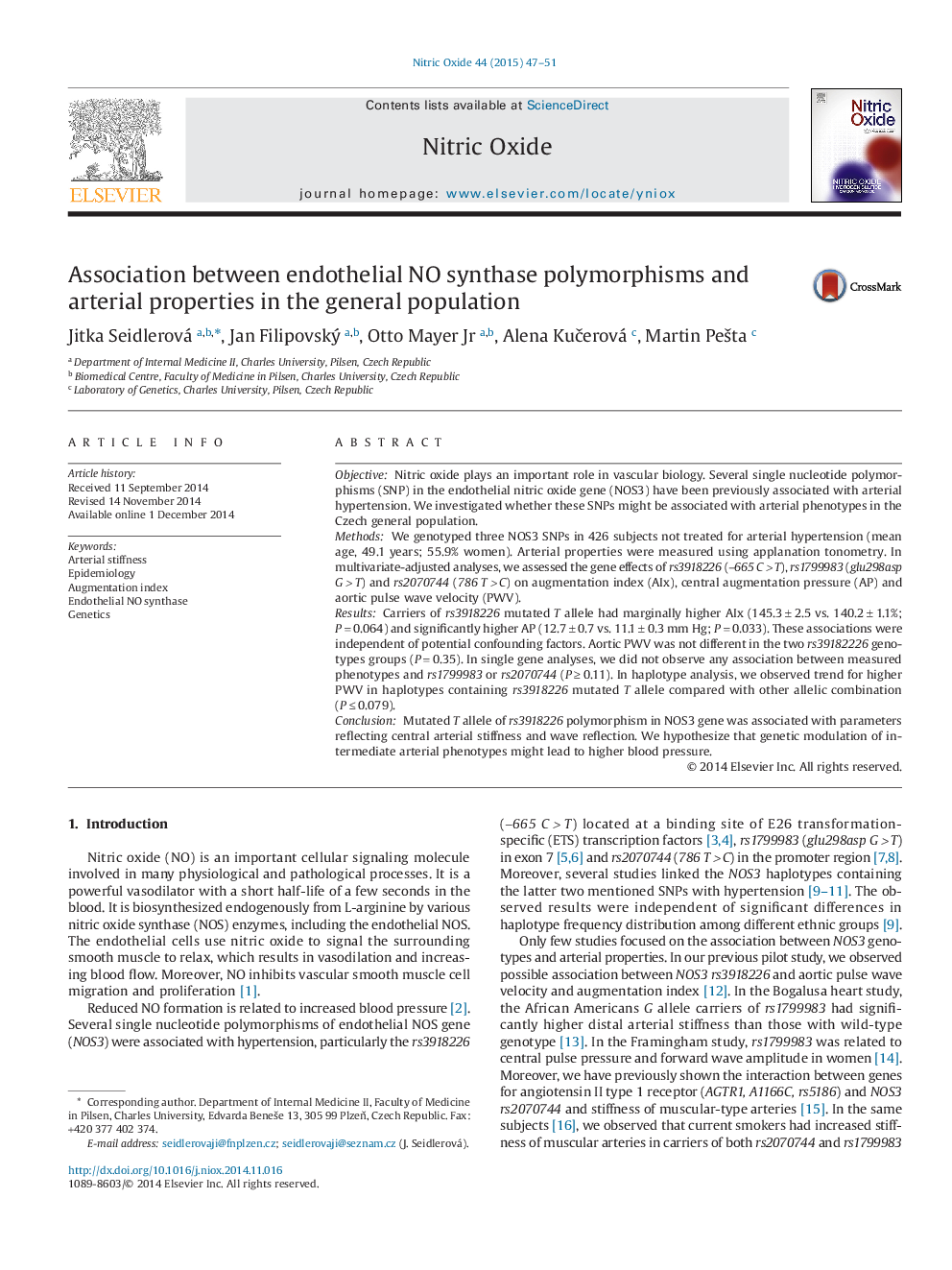| Article ID | Journal | Published Year | Pages | File Type |
|---|---|---|---|---|
| 2000520 | Nitric Oxide | 2015 | 5 Pages |
•We investigate effect of three NOS3 polymorphisms on arterial properties.•rs3918226 (−665 C > T) T allele was associated with central arterial stiffness and wave reflection.•The rs1799983 and rs2070744 did not correlate with central arterial stiffness.•Genetic modulation of intermediate arterial phenotypes might lead to arterial hypertension.
ObjectiveNitric oxide plays an important role in vascular biology. Several single nucleotide polymorphisms (SNP) in the endothelial nitric oxide gene (NOS3) have been previously associated with arterial hypertension. We investigated whether these SNPs might be associated with arterial phenotypes in the Czech general population.MethodsWe genotyped three NOS3 SNPs in 426 subjects not treated for arterial hypertension (mean age, 49.1 years; 55.9% women). Arterial properties were measured using applanation tonometry. In multivariate-adjusted analyses, we assessed the gene effects of rs3918226 (−665 C > T), rs1799983 (glu298asp G > T) and rs2070744 (786 T > C) on augmentation index (AIx), central augmentation pressure (AP) and aortic pulse wave velocity (PWV).ResultsCarriers of rs3918226 mutated T allele had marginally higher AIx (145.3 ± 2.5 vs. 140.2 ± 1.1%; P = 0.064) and significantly higher AP (12.7 ± 0.7 vs. 11.1 ± 0.3 mm Hg; P = 0.033). These associations were independent of potential confounding factors. Aortic PWV was not different in the two rs39182226 genotypes groups (P = 0.35). In single gene analyses, we did not observe any association between measured phenotypes and rs1799983 or rs2070744 (P ≥ 0.11). In haplotype analysis, we observed trend for higher PWV in haplotypes containing rs3918226 mutated T allele compared with other allelic combination (P ≤ 0.079).ConclusionMutated T allele of rs3918226 polymorphism in NOS3 gene was associated with parameters reflecting central arterial stiffness and wave reflection. We hypothesize that genetic modulation of intermediate arterial phenotypes might lead to higher blood pressure.
